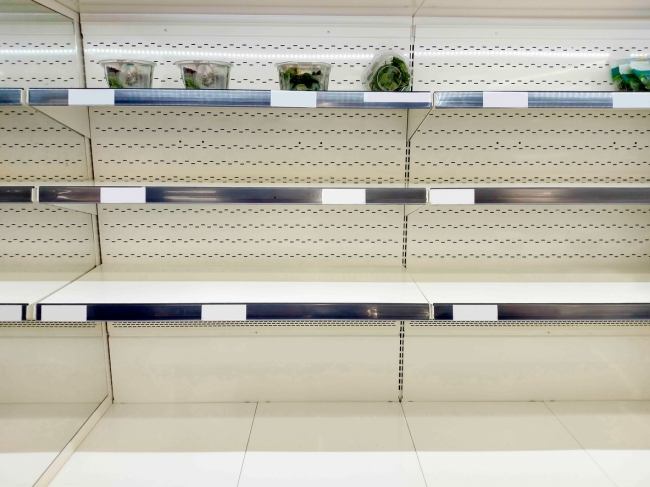3 minute read • published in partnership with SCCG
Opinion: Stop panic buying – It isn’t sustainable!
All around the world, fears continue to grow over the impact of Coronavirus, with (at the time of writing) over 200,000 confirmed cases worldwide. Experts in supply chain strategy, business continuity planning and tactical implementation support, The Supply Chain Consulting Group looks at the perfect storm of short supply and massive demand.
Unfortunately, with the rapid spread of the virus, hundreds of thousands of consumers across the country are emptying the shelves in their local shops and supermarkets, and online, to stockpile what they determine as essential products.
But the UK is not the only one having to deal with irregular buying patterns causing short supplies on essential goods, as Europe, Australia and the US are facing similar issues.
Thus, consumers now experience long queues and empty shelves, while retailers experience short supply outweighed by the massive demand, especially for basic and essential products.

Consumers are facing empty shelves despite retailers reassuring that there is enough food and supplies in the system / Picture: Getty/iStock
Items such as toilet paper, surgical masks, hand sanitiser, canned foods and dry pasta are just a few examples of the items that are in short supply, as sales increase exponentially caused by consumer stockpiling. The use of the term ‘short supply’ is in the context of unusually high and irregular demand, that is to say the supply would not be short if consumer buying habits were normal.
One of the main impacts of panic buying is excessive demand on the supply chain and the reason why we will be told that Global stocks are not infinite and subject to rationing or running out all together. Whilst consumers pile demand on the retailers, the retailers, in turn, try to match the demand profile onto wholesalers/stockists and distributors; likewise, the wholesalers and distributors put pressure on manufacturers to meet the surge in demand – and that is where the issues in maintaining supply become evident. The producers and manufacturers have a defined volume that they can manufacture influenced by raw material supply availability and of course their own production capacity, locally and Globally. These measurable constraints are further impacted by the unexpected closure of borders and as we have seen since December 2019, disruption and total failure in supply chains across all sectors, not just retail and FMCG supply chains.
As a result of the current pandemic and its direct impact on supply chains, Tesco, the UK’s largest grocer is restricting the sales of essential foods and household items.
Sainsbury’s and Waitrose have also limited the purchases of soap, handwash, tissues and cleaning products per customer. However, with the exception of grocery products, Sainsbury’s hasn’t applied any other restrictions on the number of food products that consumers can purchase, despite the on-going stockpiling behaviour.
Co-op’s restrictions are of 3 units per person over hand sanitiser, toilet and kitchen rolls, antibacterial soap and hand and surface wipes, while Asda and Aldi have introduced a limit of maximum two bottles per person on hand sanitiser.
In a recent announcement, the Confederation of Paper Industries (CPI) and Paper Industry Technical Association (PITA) are trying to restore consumers’ trust, insisting that stockpiling hygiene products during coronavirus is not necessary, as both manufacturing and distribution of toilet paper continue to operate as usual.
The University of British Columbia professor and clinical psychologist Steven Taylor affirmed that “If the price of a roll of toilet paper is tripled, that’s seen as a scarcer commodity to acquire, which can lead to anxiety” – which will potentially lead to overpricing in a demand-driven market with finite supply – a basic principle of economics.
The British Retail Consortium Director of Food and Sustainability, Andrew Opie has confirmed that “supply chains remain robust and even where there are challenges, retailers are well-versed in providing measures” to keep shops running smoothly.
So why do consumers still stockpile?
Specialists say the answers is the fear of the unknown and thinking that a dramatic event, such as COVID-19, demands a dramatic response, hence it is also referred to as ‘panic’ buying. This is usually spurred on by sensationalised media coverage, which is designed to provoke a reaction. It may not be considered by some as a rational reaction, but despite all the evidence and advice from authorities and governments, it will always happen regardless, when these types of major Global events occur.
